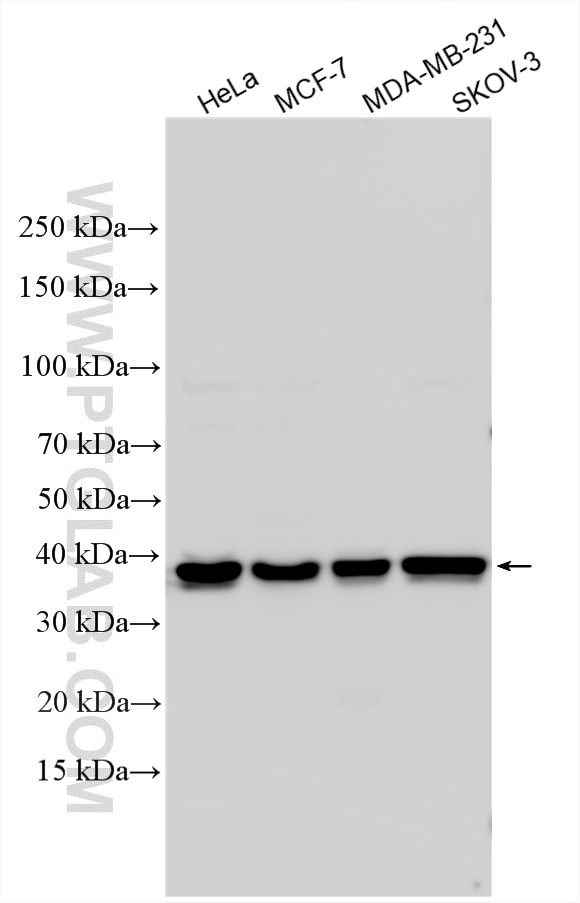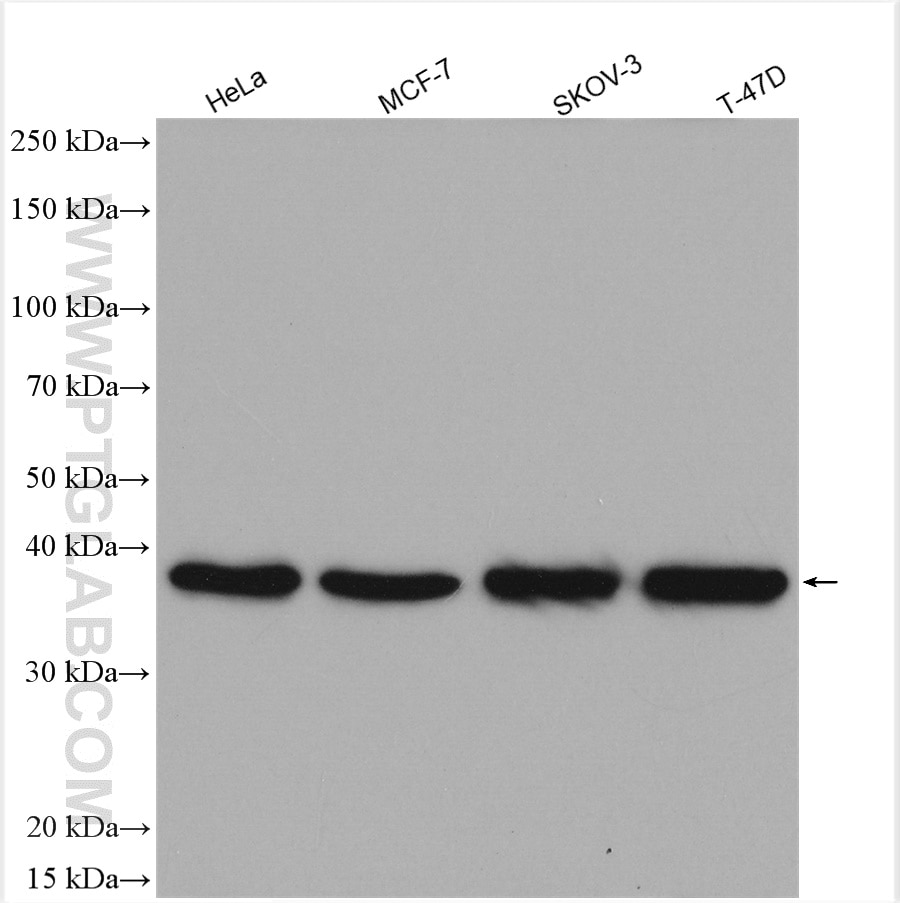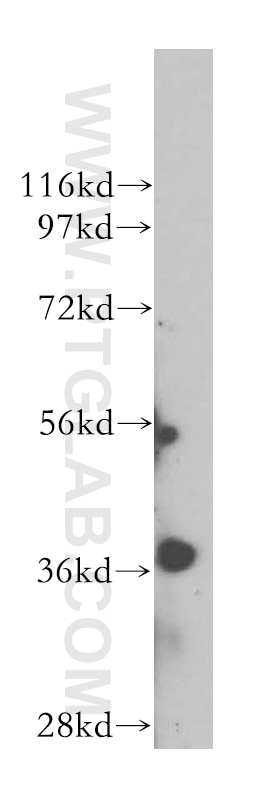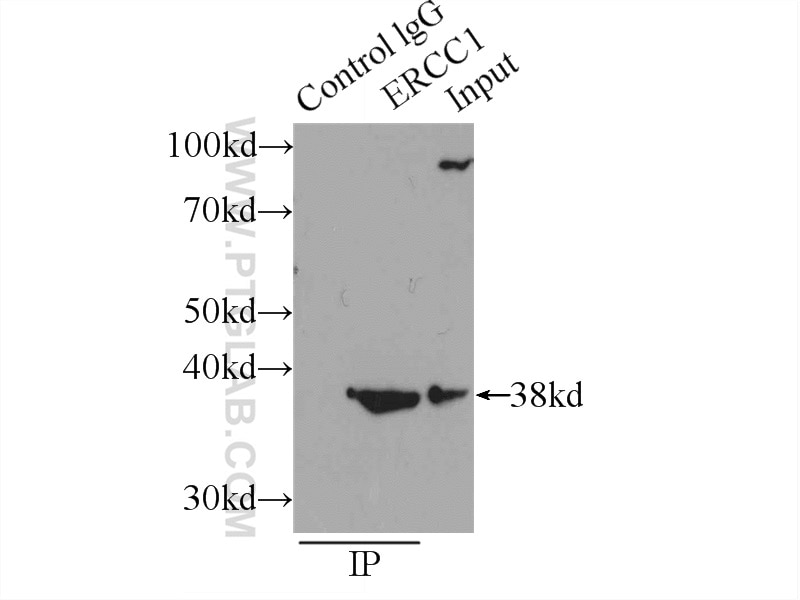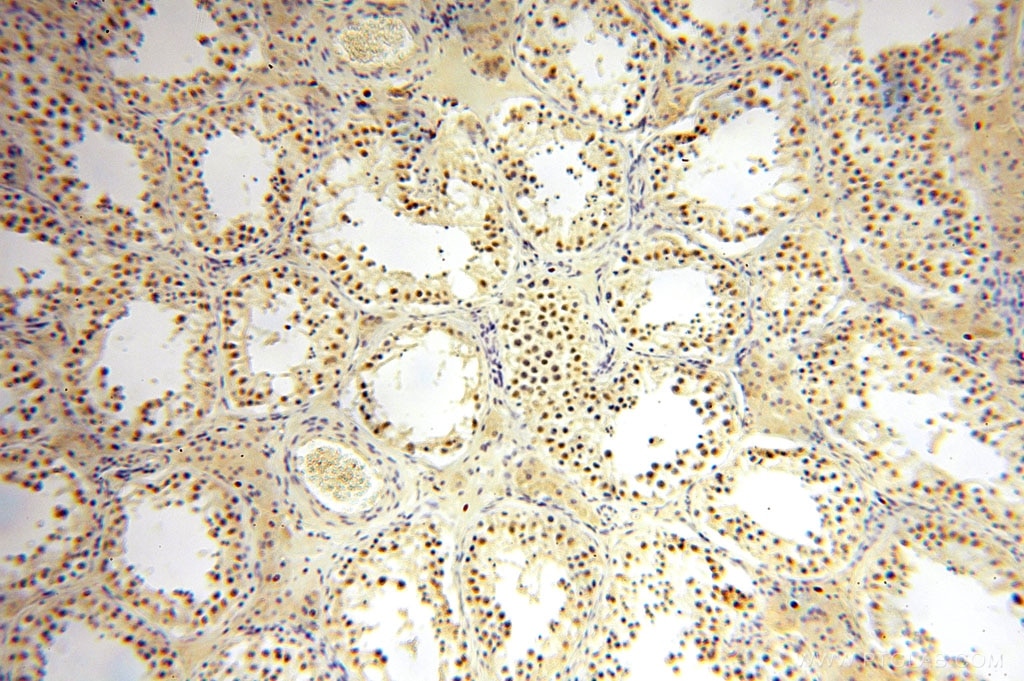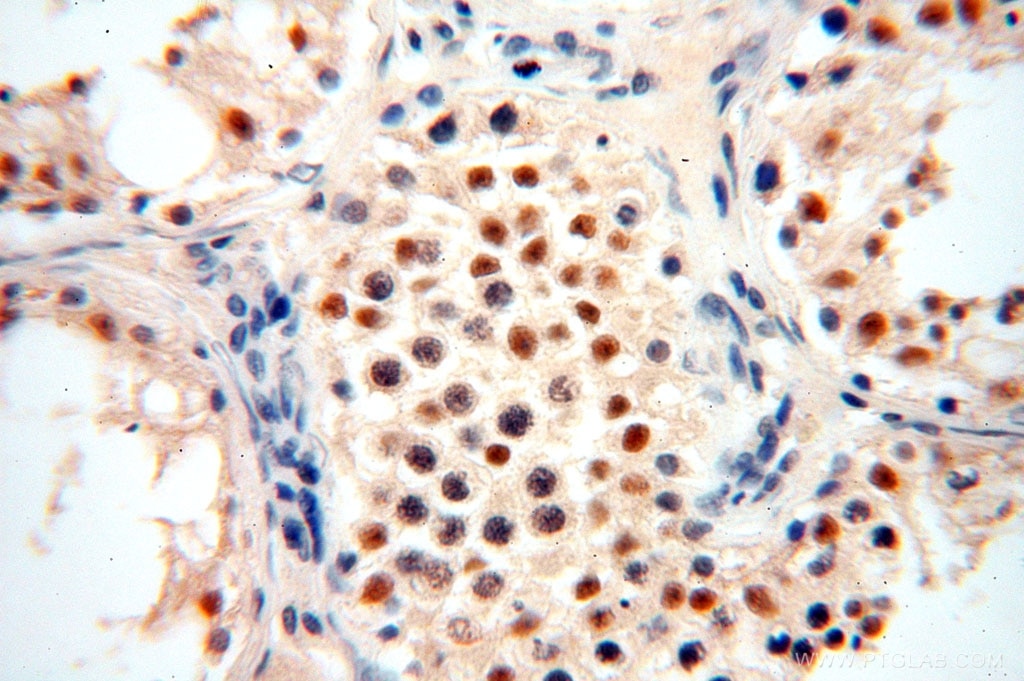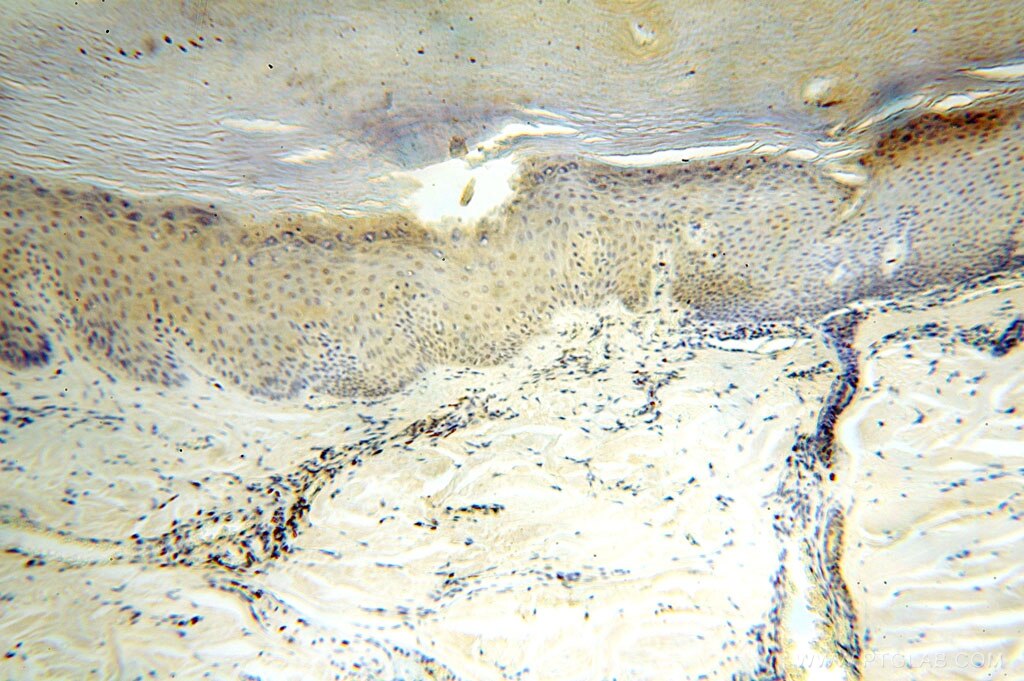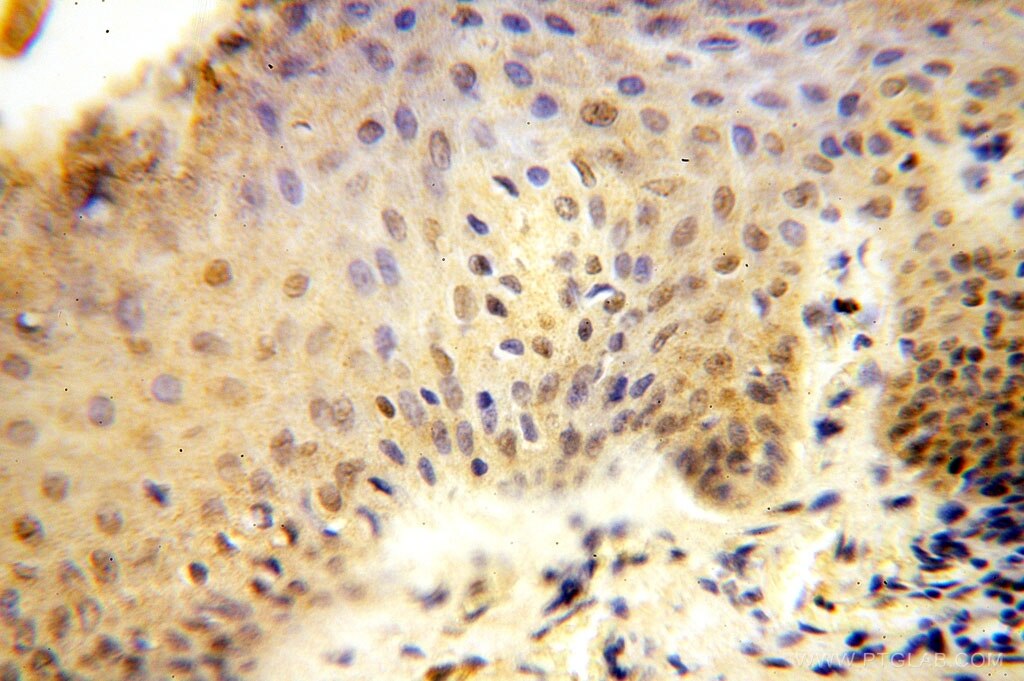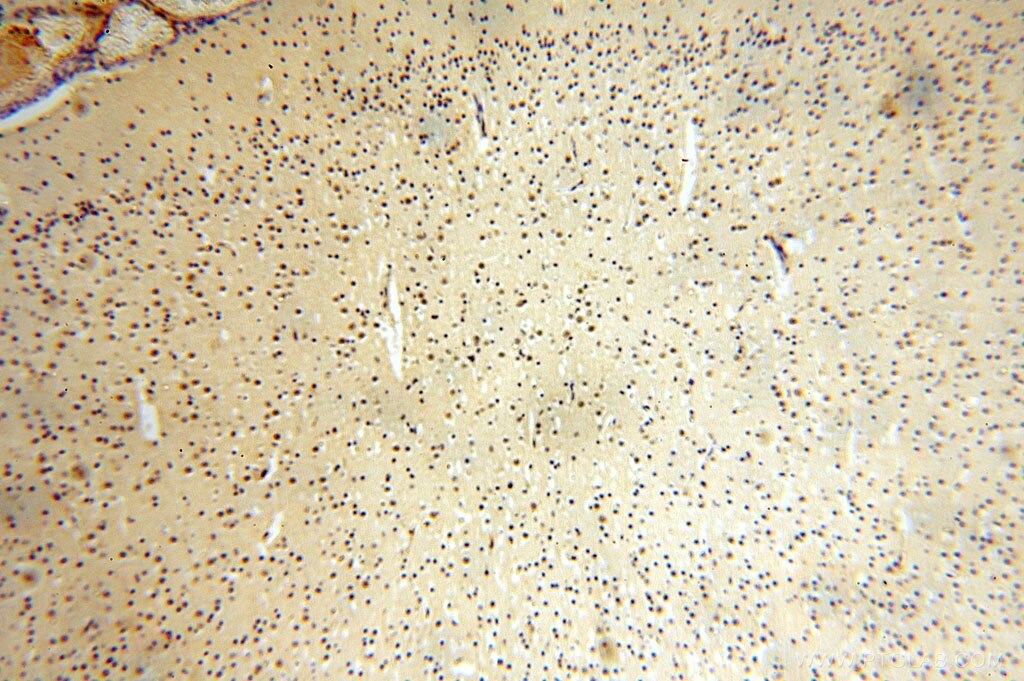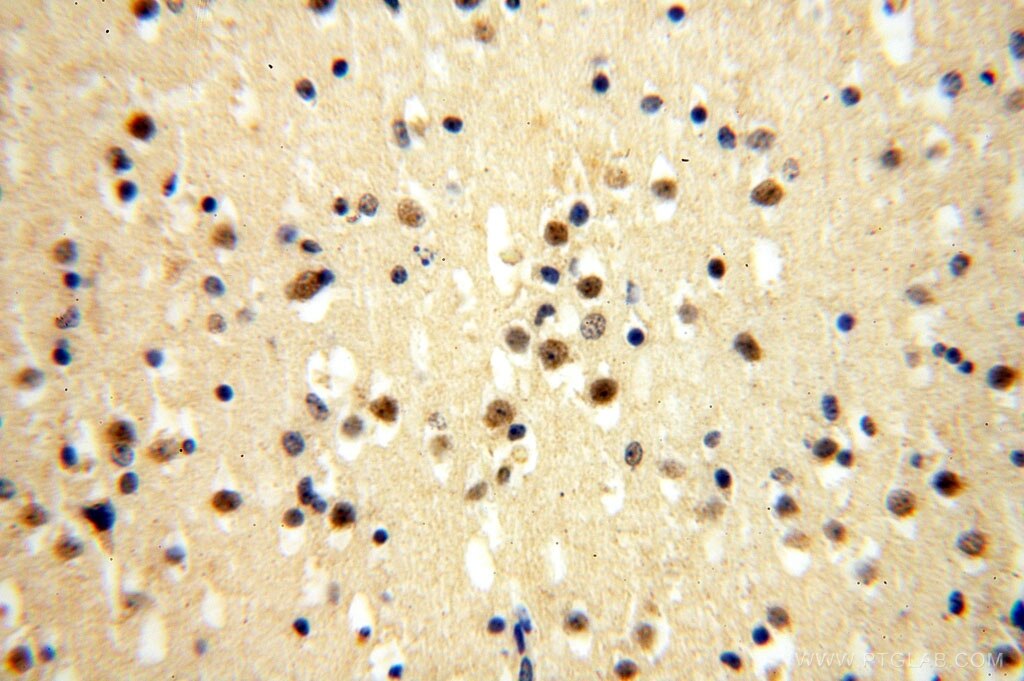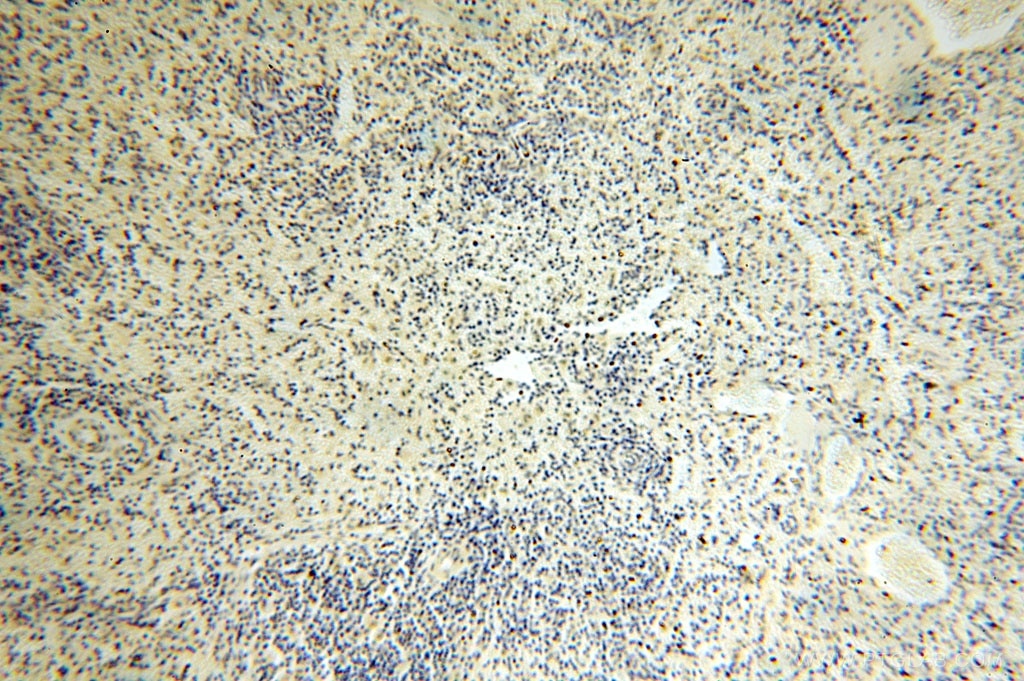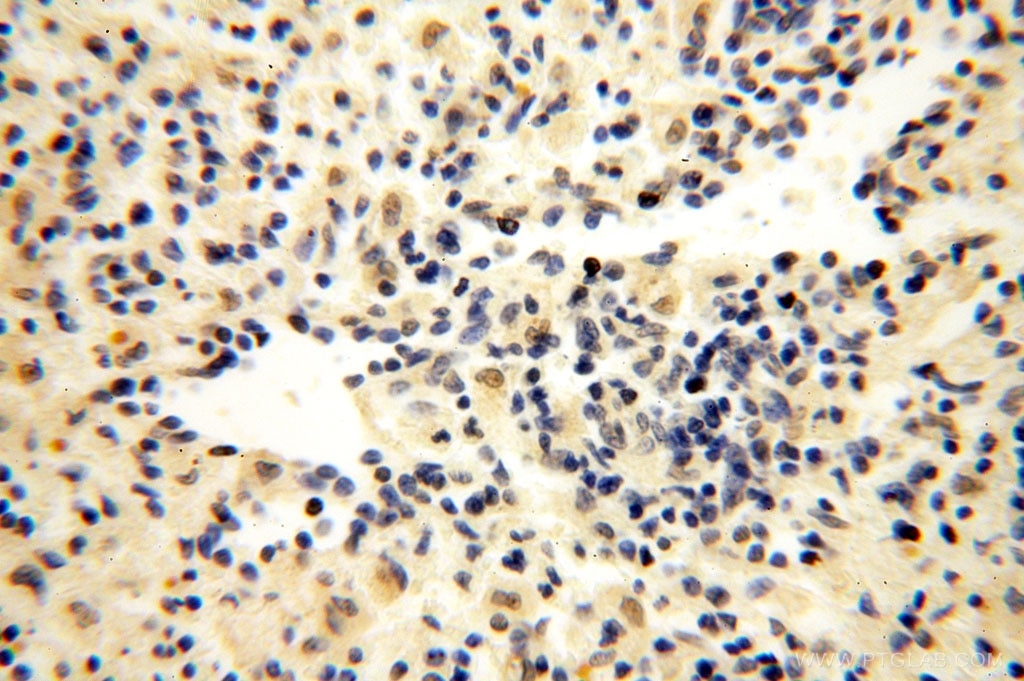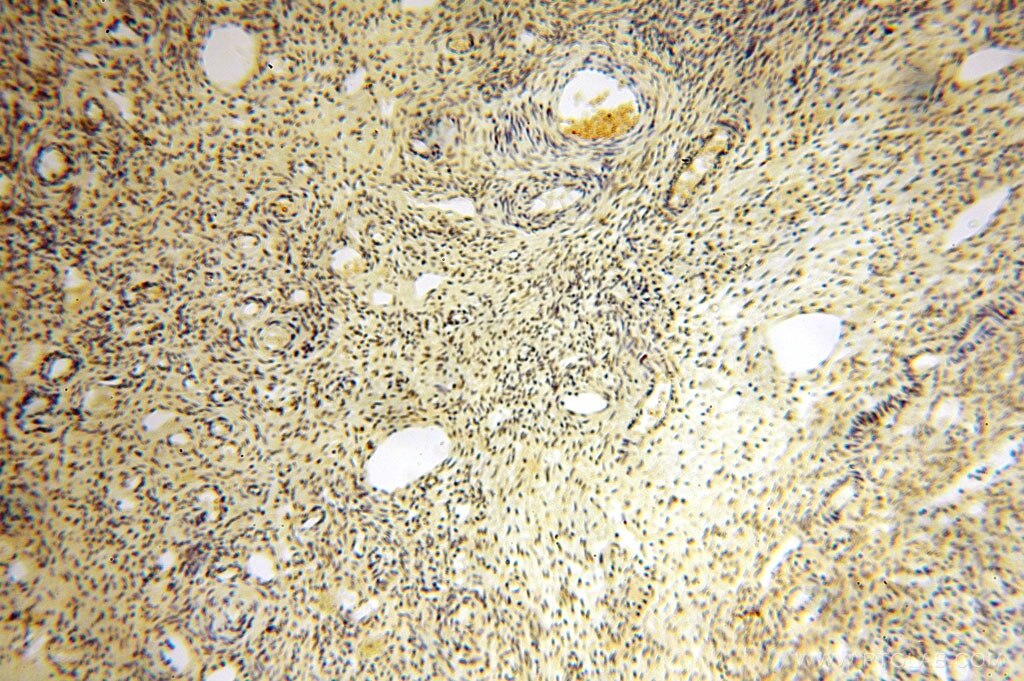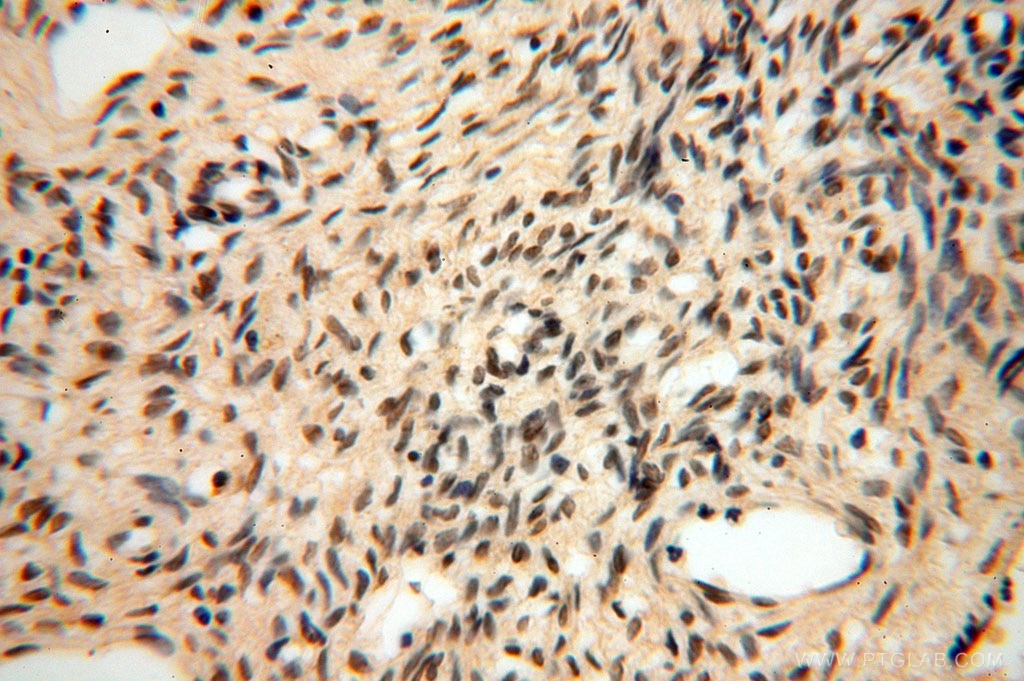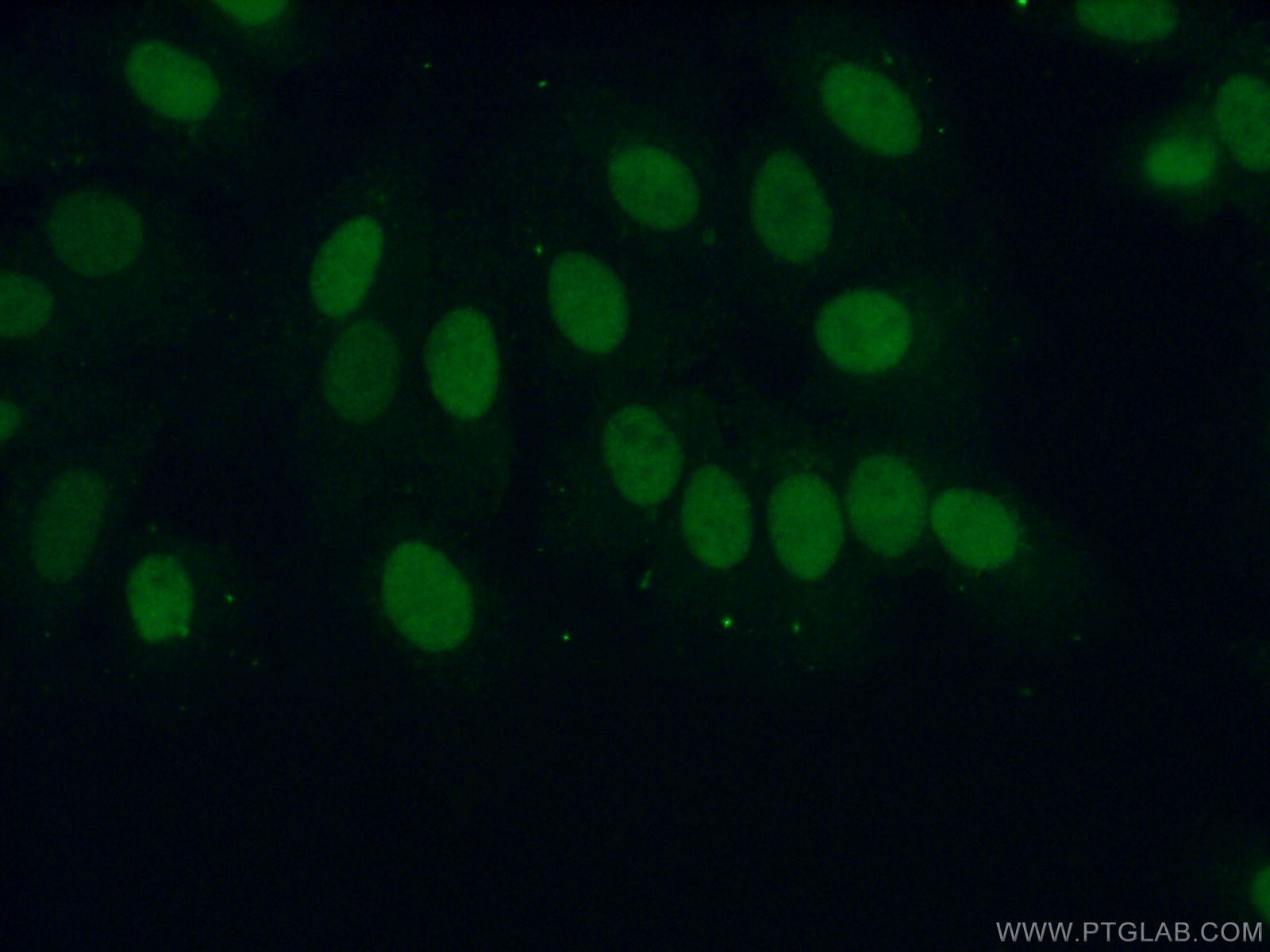Tested Applications
| Positive WB detected in | HeLa cells, human kidney tissue, MCF-7 cells, MDA-MB-231 cells, SKOV-3 cells, T-47D cells |
| Positive IP detected in | MCF-7 cells |
| Positive IHC detected in | human testis tissue, human brain tissue, human ovary tissue, human skin tissue, human spleen tissue Note: suggested antigen retrieval with TE buffer pH 9.0; (*) Alternatively, antigen retrieval may be performed with citrate buffer pH 6.0 |
| Positive IF/ICC detected in | MCF-7 cells |
Recommended dilution
| Application | Dilution |
|---|---|
| Western Blot (WB) | WB : 1:2000-1:16000 |
| Immunoprecipitation (IP) | IP : 0.5-4.0 ug for 1.0-3.0 mg of total protein lysate |
| Immunohistochemistry (IHC) | IHC : 1:20-1:200 |
| Immunofluorescence (IF)/ICC | IF/ICC : 1:50-1:500 |
| It is recommended that this reagent should be titrated in each testing system to obtain optimal results. | |
| Sample-dependent, Check data in validation data gallery. | |
Published Applications
| KD/KO | See 5 publications below |
| WB | See 17 publications below |
| IHC | See 4 publications below |
Product Information
14586-1-AP targets ERCC1 in WB, IHC, IF/ICC, IP, ELISA applications and shows reactivity with human, mouse, rat samples.
| Tested Reactivity | human, mouse, rat |
| Cited Reactivity | human, mouse |
| Host / Isotype | Rabbit / IgG |
| Class | Polyclonal |
| Type | Antibody |
| Immunogen |
CatNo: Ag6112 Product name: Recombinant human ERCC1 protein Source: e coli.-derived, PGEX-4T Tag: GST Domain: 1-323 aa of BC052813 Sequence: MDPGKDKEGVPQPSGPPARKKFVIPLDEDEVPPGVAKPLFRSTQSLPTVDTSAQAAPQTYAEYAISQPLEGAGATCPTGSEPLAGETPNQALKPGAKSNSIIVSPRQRGNPVLKFVRNVPWEFGDVIPDYVLGQSTCALFLSLRYHNLHPDYIHGRLQSLGKNFALRVLLVQVDVKDPQQALKELAKMCILADCTLILAWSPEEAGRYLETYKAYEQKPADLLMEKLEQDFVSRVTECLTTVKSVNKTDSQTLLTTFGSLEQLIAASREDLALCPGLGPQKVRALGKNPRSWGKERAPNKHNLRPQSFKVKKEPKTRHSGFRL Predict reactive species |
| Full Name | excision repair cross-complementing rodent repair deficiency, complementation group 1 (includes overlapping antisense sequence) |
| Calculated Molecular Weight | 33 kDa |
| Observed Molecular Weight | 38 kDa |
| GenBank Accession Number | BC052813 |
| Gene Symbol | ERCC1 |
| Gene ID (NCBI) | 2067 |
| RRID | AB_2100027 |
| Conjugate | Unconjugated |
| Form | Liquid |
| Purification Method | Antigen affinity purification |
| UNIPROT ID | P07992 |
| Storage Buffer | PBS with 0.02% sodium azide and 50% glycerol, pH 7.3. |
| Storage Conditions | Store at -20°C. Stable for one year after shipment. Aliquoting is unnecessary for -20oC storage. 20ul sizes contain 0.1% BSA. |
Background Information
Excision Repair Cross Complementing 1 (ERCC1) is a structure-specific endonuclease that is responsible for the 5'-incision during DNA repair. It forms a complex with ERCC11, XPF and ERCC4, which are required in both recombinatorial repair and nucleotide excision repair. It has been found that ERCC1, together with RRM1, are determinants of survival after surgical treatment of early-stage, non-small-cell lung cancer. (Ref: Simon, ER. 2005). The calculated molecular weight of ERCC1 is 33 kDa, but the modified ERCC1 is about38 kDa.
Protocols
| Product Specific Protocols | |
|---|---|
| IF protocol for ERCC1 antibody 14586-1-AP | Download protocol |
| IHC protocol for ERCC1 antibody 14586-1-AP | Download protocol |
| IP protocol for ERCC1 antibody 14586-1-AP | Download protocol |
| WB protocol for ERCC1 antibody 14586-1-AP | Download protocol |
| Standard Protocols | |
|---|---|
| Click here to view our Standard Protocols |
Publications
| Species | Application | Title |
|---|---|---|
Cancer Cell Induction of a mismatch repair deficient genotype by tailored chemical mutagenesis in experimental models of cancer | ||
Blood Cancer J Severe ineffective erythropoiesis discriminates prognosis in myelodysplastic syndromes: analysis based on 776 patients from a single centre.
| ||
Cell Death Dis PFKFB3 blockade inhibits hepatocellular carcinoma growth by impairing DNA repair through AKT. | ||
J Cell Mol Med Berberine attenuates XRCC1-mediated base excision repair and sensitizes breast cancer cells to the chemotherapeutic drugs. | ||
Oncotarget Functional characterization of a novel transcript of ERCC1 in chemotherapy resistance of ovarian cancer. | ||
Oncol Res The AKT/GSK3-Mediated Slug Expression Contributes to Oxaliplatin Resistance in Colorectal Cancer via Upregulation of ERCC1.
|
Reviews
The reviews below have been submitted by verified Proteintech customers who received an incentive for providing their feedback.
FH Yogain (Verified Customer) (12-19-2025) | Antibody works really well for western blot.
|
FH Aditya (Verified Customer) (06-16-2025) | works well
|

